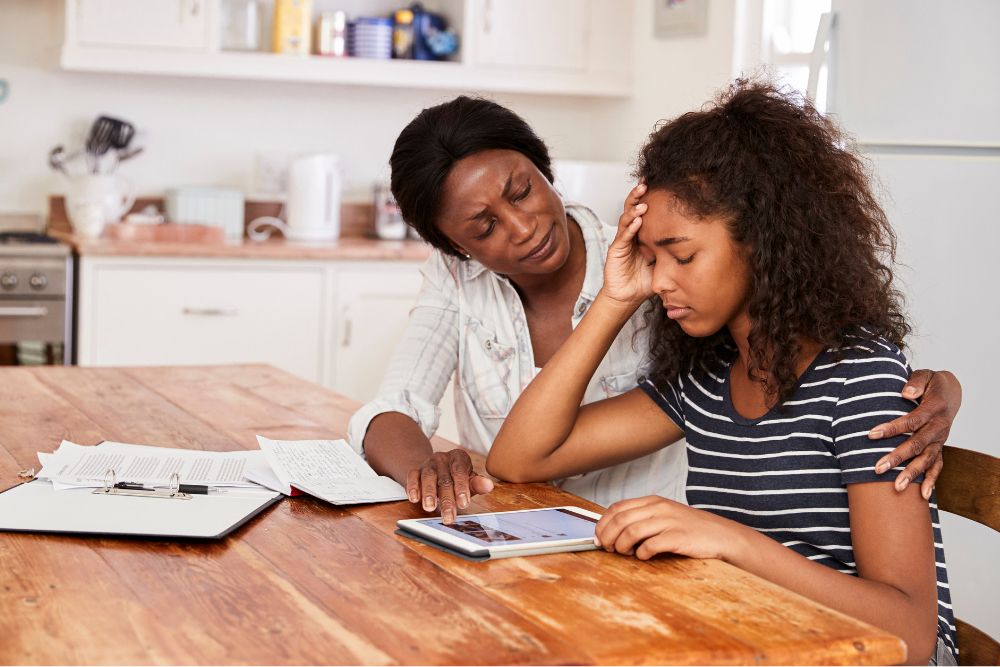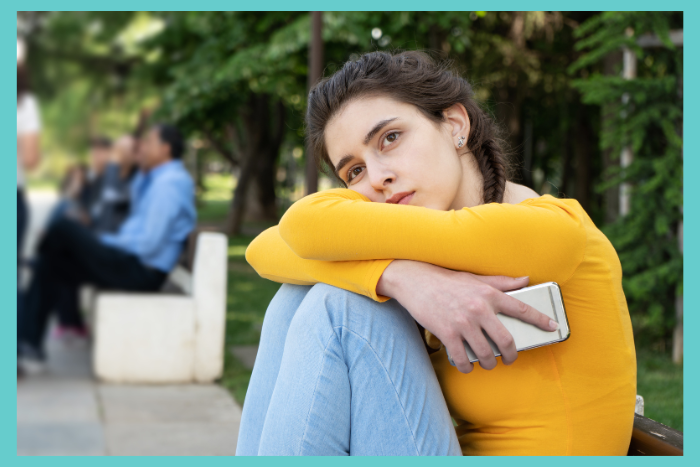Are you concerned that your teen may be depressed? Depression is a serious mental health condition characterized by overwhelming and long-lasting negative thoughts and emotions. As a mood condition, depression has significant effects on a person’s emotional state. In addition to emotional distress, depression can also lead to a range of other symptoms. Understanding the key symptoms of depression can help you identify any signs that your teen exhibits.
Depression in teenagers should not go unaddressed. Left untreated, depression symptoms can worsen over time. A person who is depressed may be considered to have severe depression if their symptoms are particularly intense. Many people with major depressive disorder (MDD) could be considered severely depressed. If you think your teen may be experiencing severe depression, rapid and effective support is essential. No depression should be ignored. Regardless of the intensity of your teen’s symptoms, it is important to find a level of mental health treatment that works for them.
3 key symptoms of severe depression in teens
- Chronic sadness or low mood — Does your teen often seem to be sad or down? Persistent low moods can be a key indicator of severe depression. Depression has a significant effect on a person’s neurochemistry. When someone is depressed, their brain may lack a sufficient amount of mood-regulating chemicals. This is why medications that increase mood-related neurotransmitters can be helpful in treating depression. One example is selective serotonin reuptake inhibitors (SSRIs). SSRIs work to promote the retention of serotonin, a natural feel-good chemical, in the brain. An effective course of treatment for severe depression may include medication as well as therapeutic strategies. With the right treatment plan, your teen can start their journey toward mental wellness.
- Lack of interest in activities — Teens usually have a few major hobbies and activities that they enjoy. These activities can differ widely. For example, one teenager might spend a lot of time practicing for their sport while another plays board games or goes to concerts with friends. Whatever your teen’s main interests are, pay attention if they start to withdraw from the things they enjoy. If your teen seems to start losing interest in their favorite activities, it could indicate severe depression.
- Low self-esteem — Has your teen started to express negative thoughts about themselves? If your teen expresses feelings of persistent self-doubt, they may have severe depression. Depression often lowers a person’s self-esteem. This can cause them to be more critical of themselves than usual. Your teen may start to be especially hard on themselves when they make mistakes. They may feel guilty about things that aren’t their fault. If your teen is struggling with their self-esteem, it is important to provide emotional support and seek treatment when necessary.
What are the criteria for depression?
Diagnosing depression can be complicated. In some cases, a person can experience depression symptoms without necessarily meeting the criteria for major depressive disorder or other diagnosable mental health conditions. While it can be helpful to know the criteria for diagnosing depression, it is also important to remember that treatment can be helpful regardless of a person’s diagnosis status.
The fifth edition of the Diagnostic and Statistical Manual of Mental Disorders, often referred to as the DSM-5-TR, is a book put together by the American Psychiatric Association (APA). The manual contains official criteria for a wide range of mental health conditions. There are several depressive conditions listed in the DSM-5-TR, each with its own criteria. A major depressive episode, for example, is characterized by the combination of depressed mood or loss of interest or pleasure lasting for most of the day, nearly every day for two weeks or more. If you aren’t sure whether your teen meets the criteria for depression, a comprehensive assessment from a mental health professional would be beneficial. Learning more about your teen’s particular condition can help you collaborate with their doctors to find the best treatment solution.
How many teens have depression?
According to a 2021 national survey, around 20% of adolescents aged 12-17 had experienced a major depressive episode within the last year. If your teen experiences severe depression symptoms, they are not alone. In addition to traditional treatment methods like therapy and medication, peer support can be invaluable. Many top treatment providers offer group therapy and other strategies that integrate peer support into a comprehensive treatment plan.
Get safe and effective adolescent depression treatment at Embrace U
Ready to help your teen take the next step and get the treatment they need? Embrace U offers effective services for treating severe depression in teens. With our intensive outpatient program (IOP) and partial hospitalization program (PHP), your teen can benefit from structured depression treatment as they work toward recovery.
Contact our team today for more information or to schedule an initial appointment.




